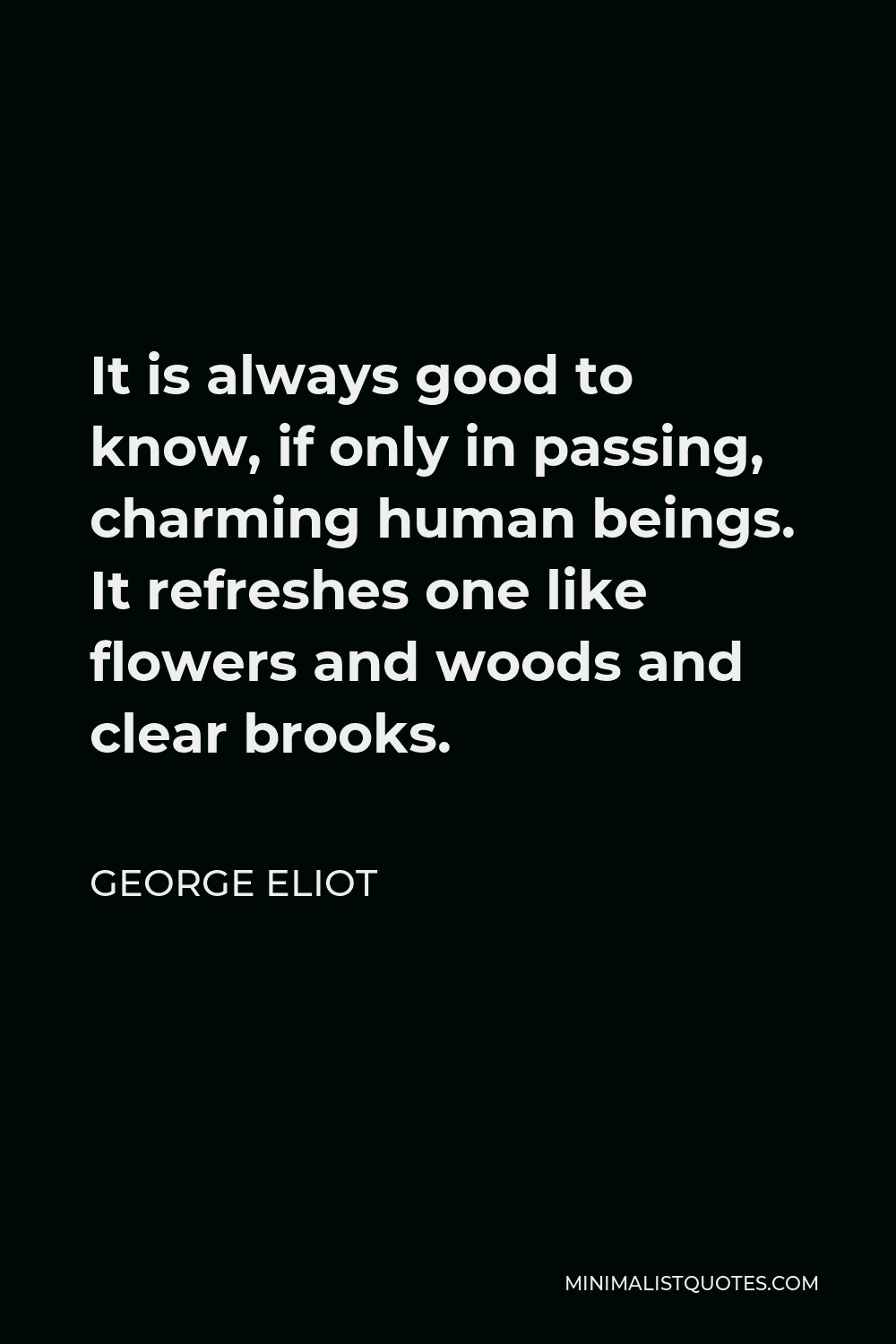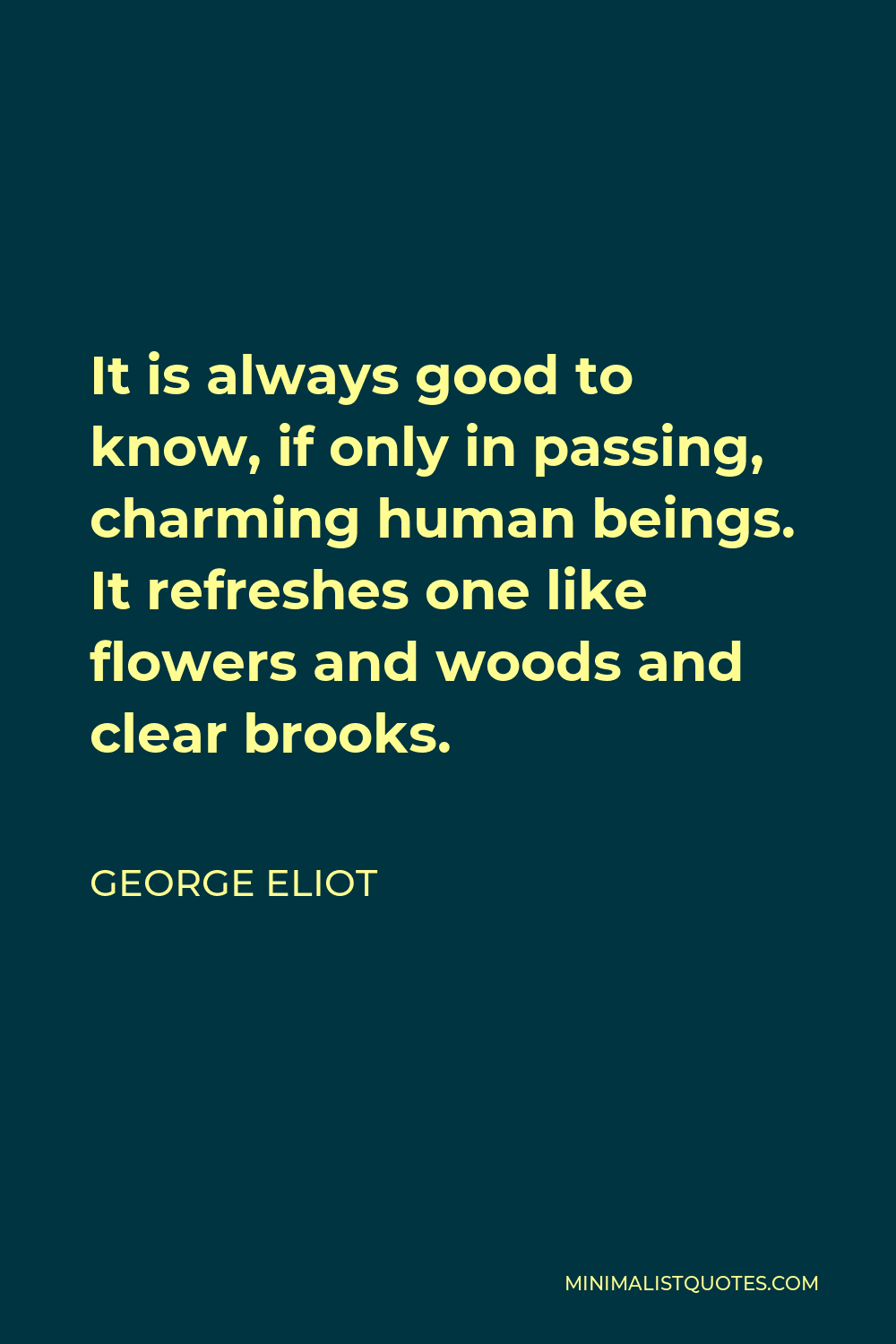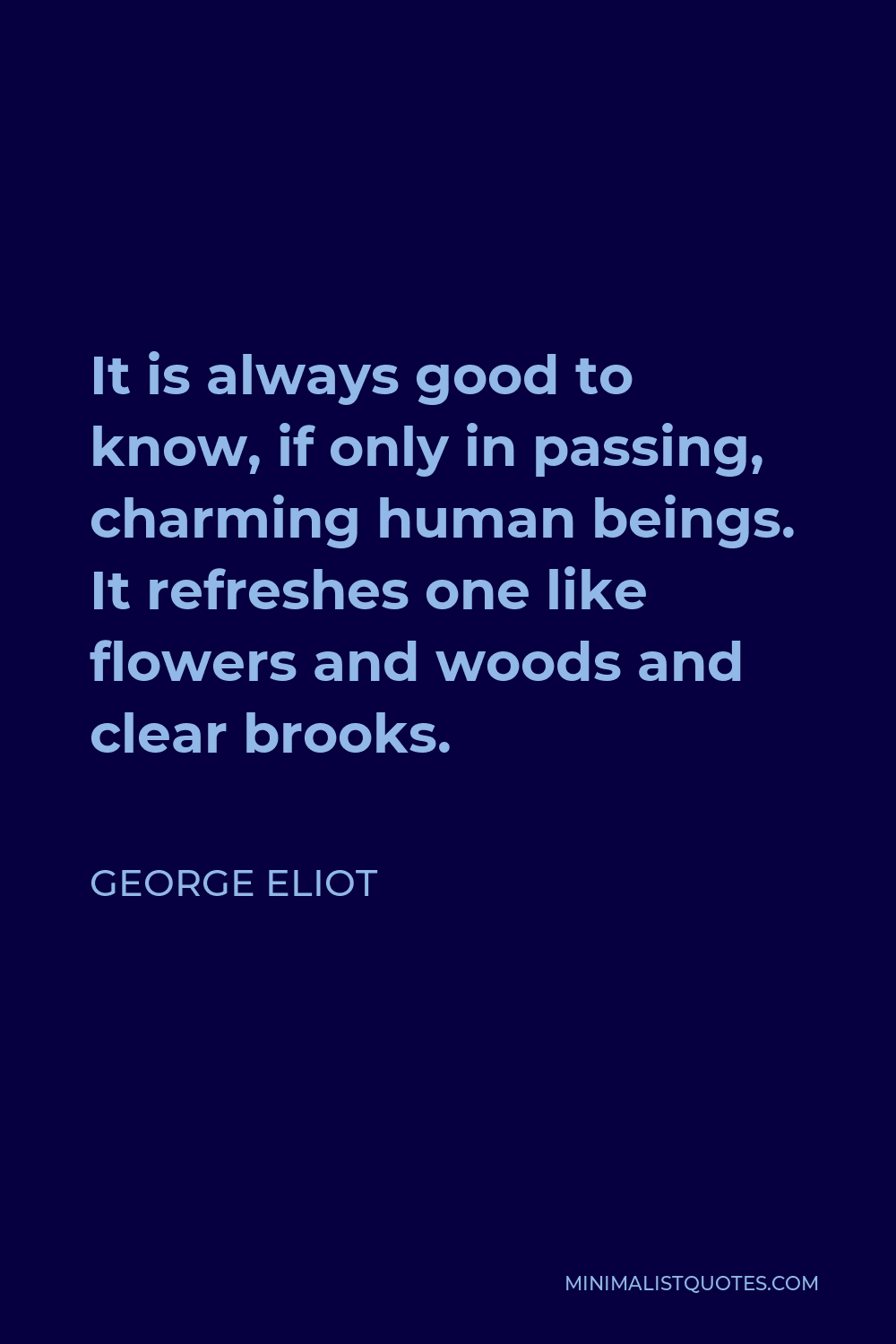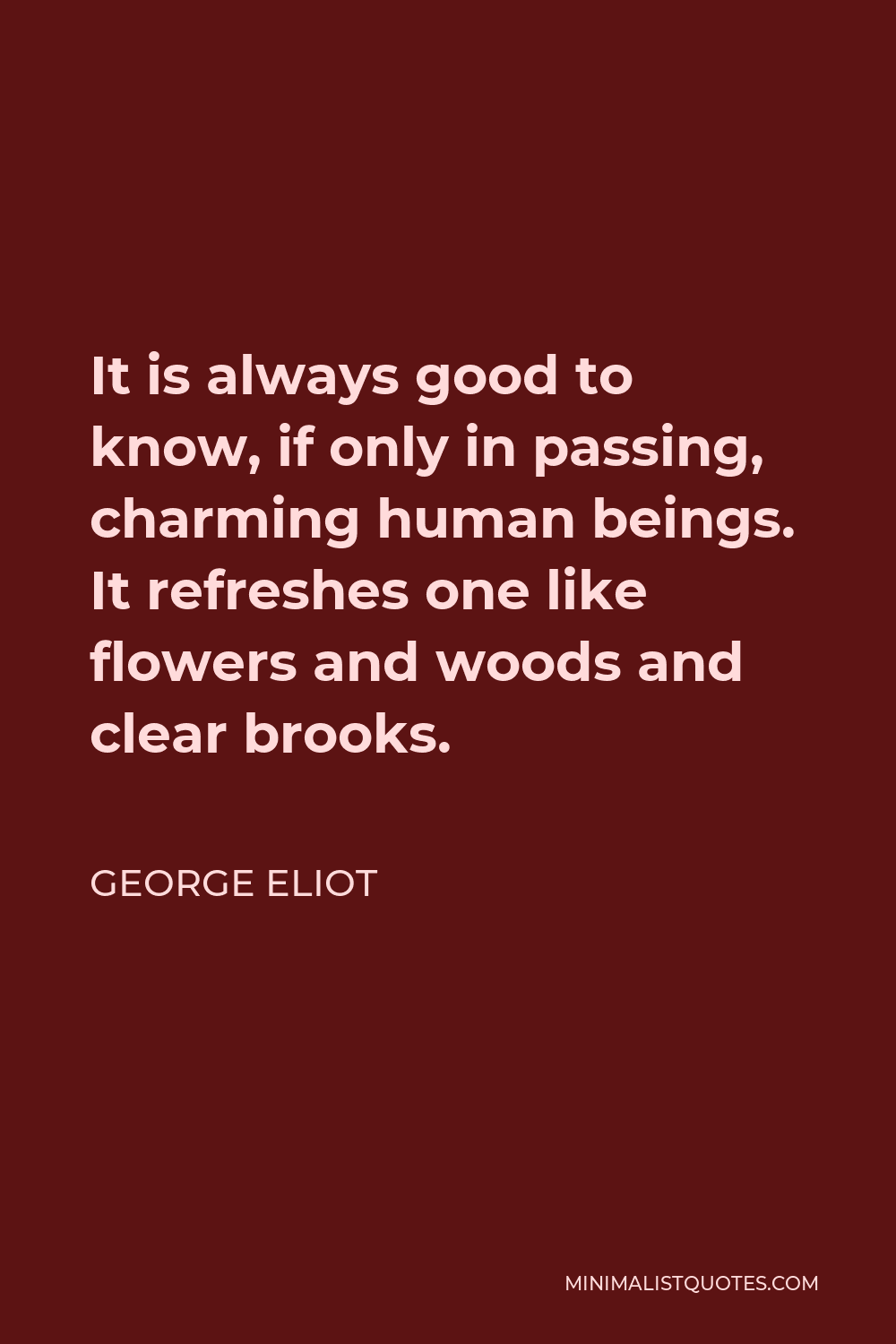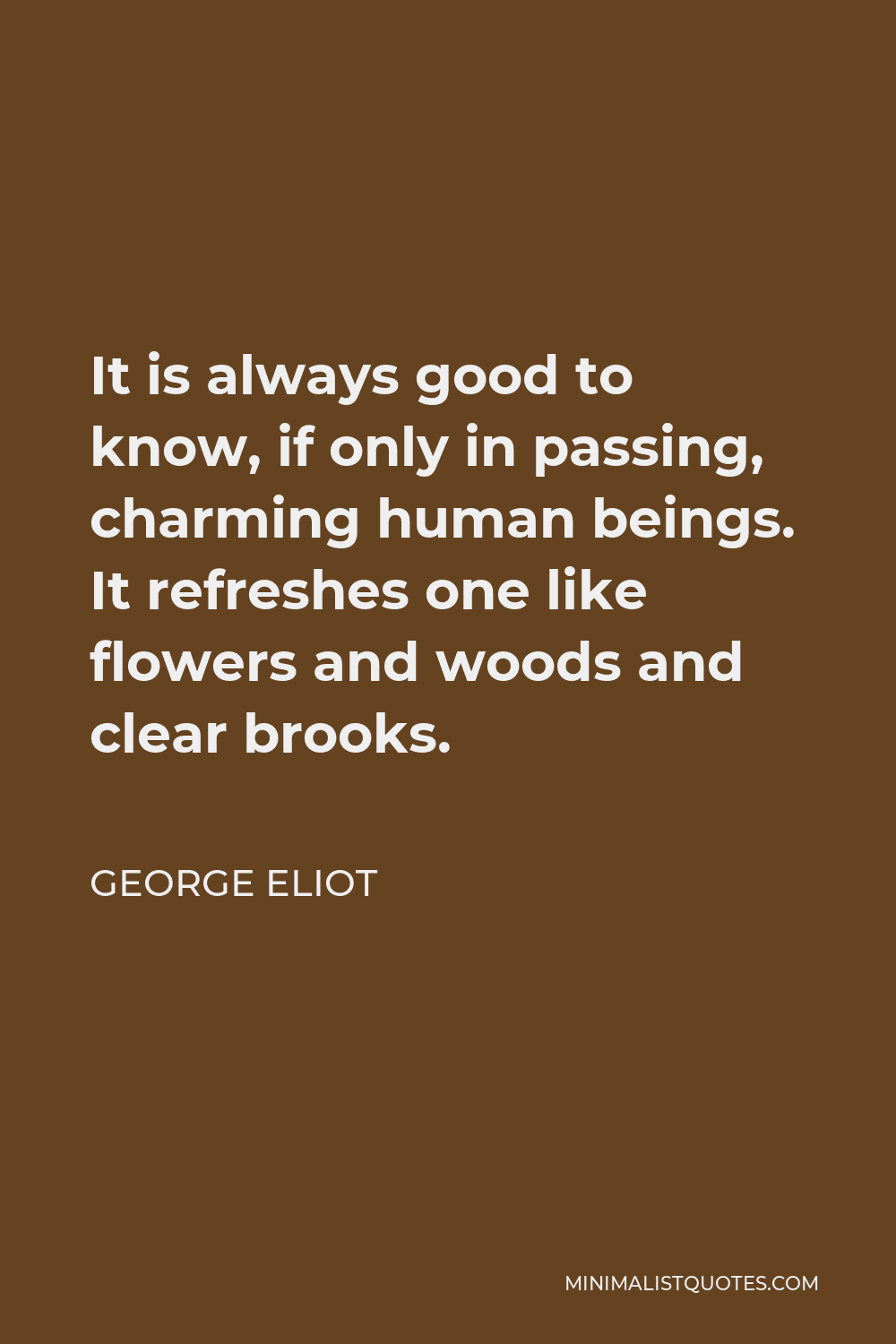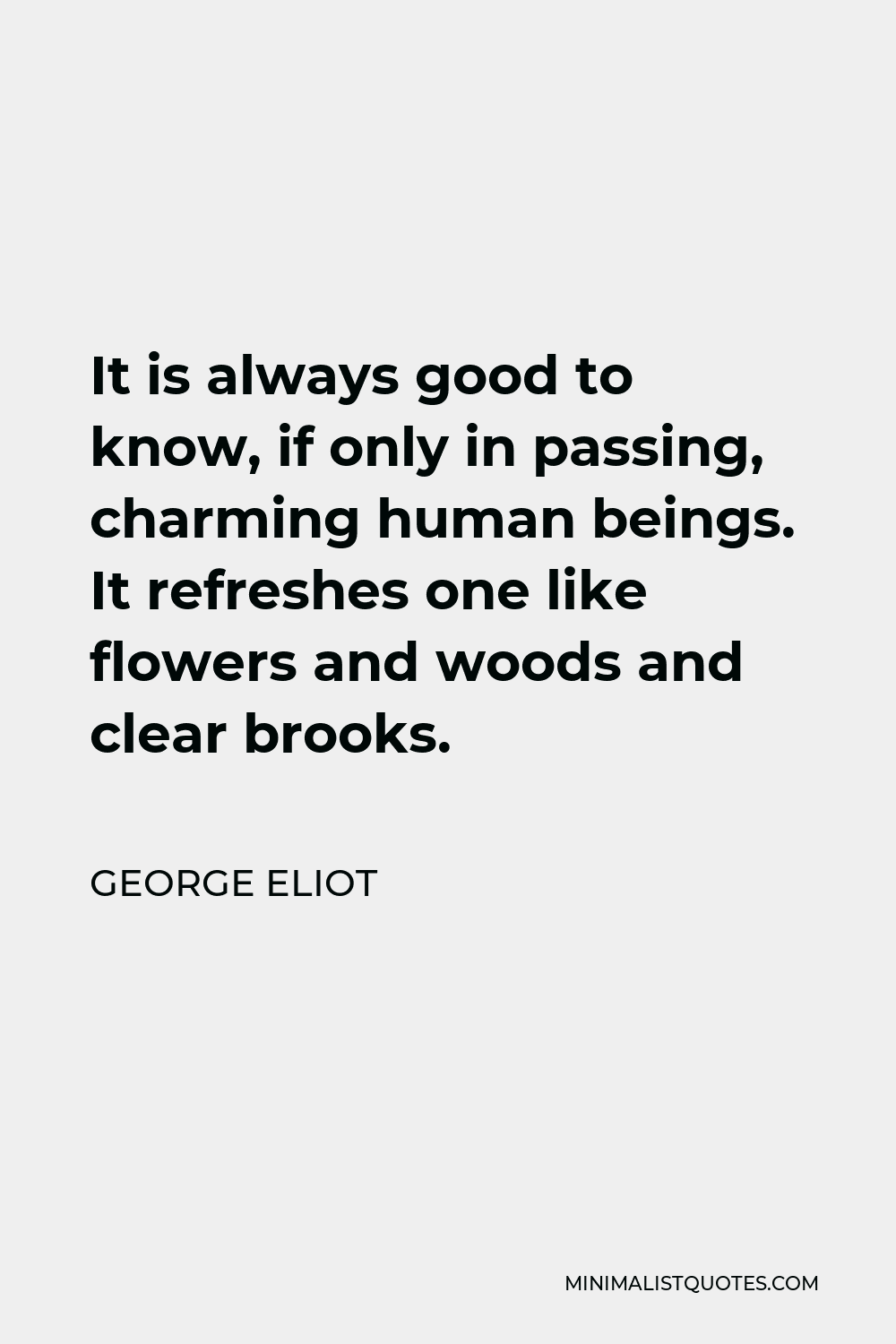Friendship is the inexpressible comfort of feeling safe with a person, having neither to weigh thoughts nor measure words.
GEORGE ELIOTIt is always good to know, if only in passing, charming human beings. It refreshes one like flowers and woods and clear brooks.
More George Eliot Quotes
-





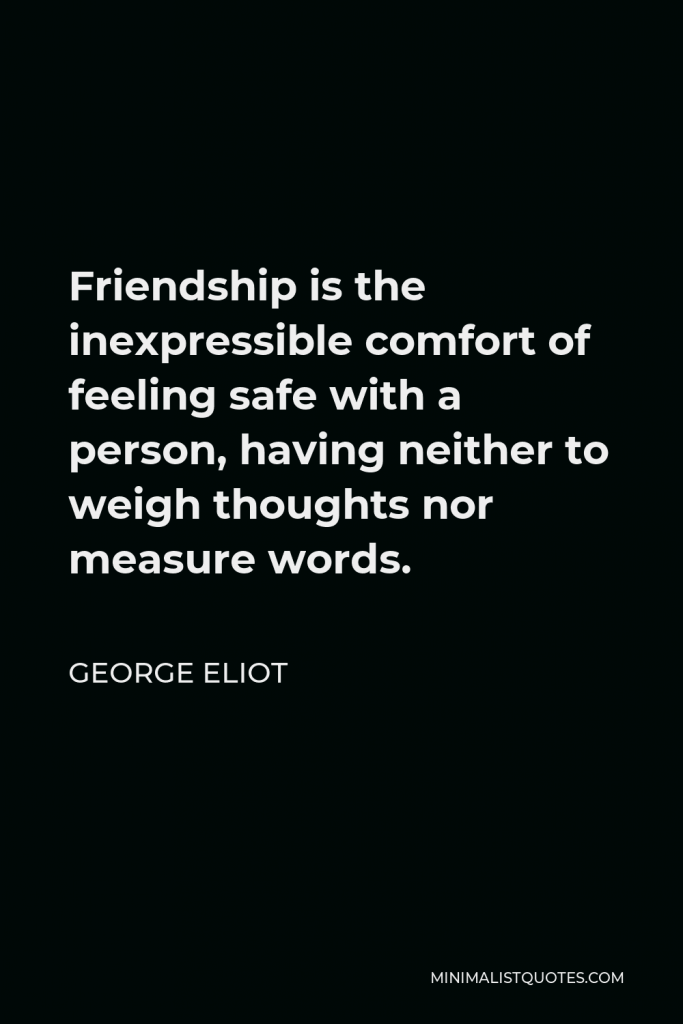

-





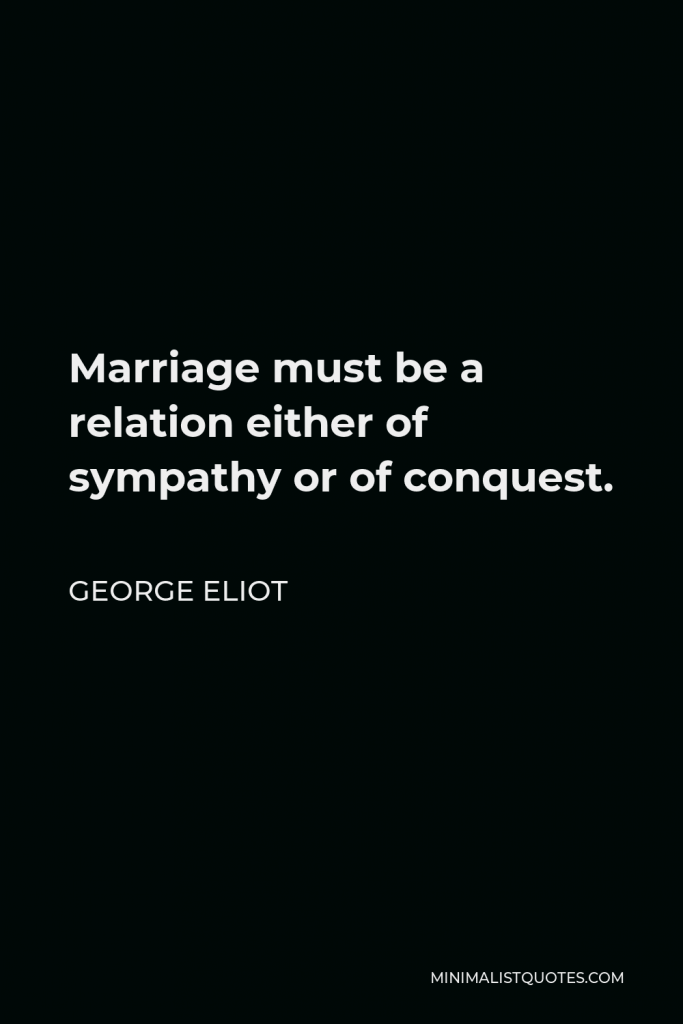

Marriage must be a relation either of sympathy or of conquest.
GEORGE ELIOT -







There are many victories worse than a defeat.
GEORGE ELIOT -





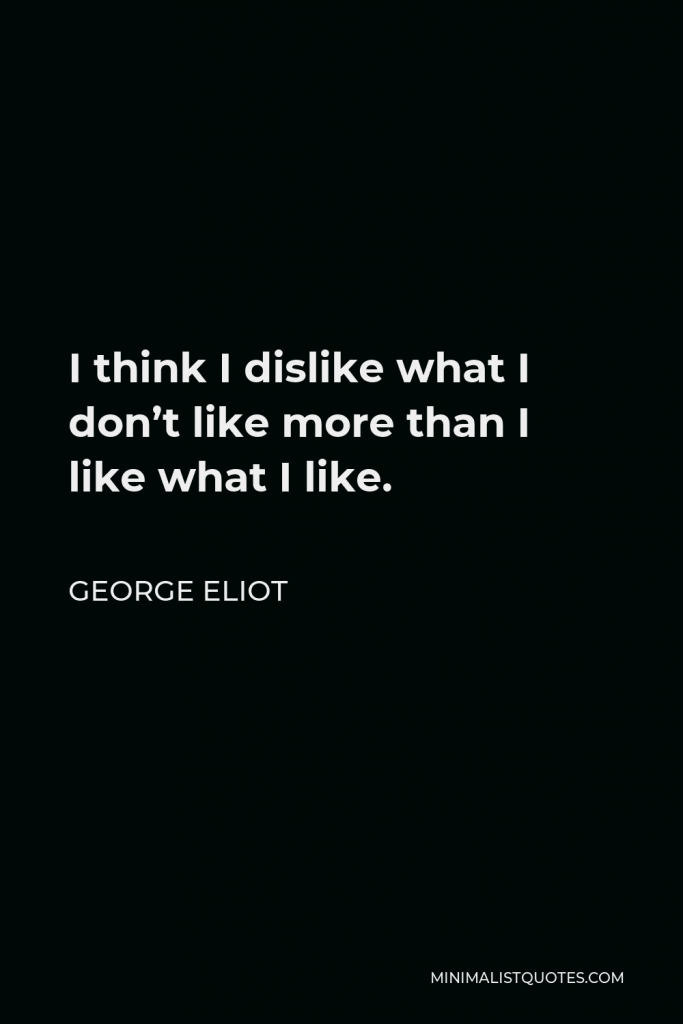

I think I dislike what I don’t like more than I like what I like.
GEORGE ELIOT -







One can say everything best over a meal.
GEORGE ELIOT -





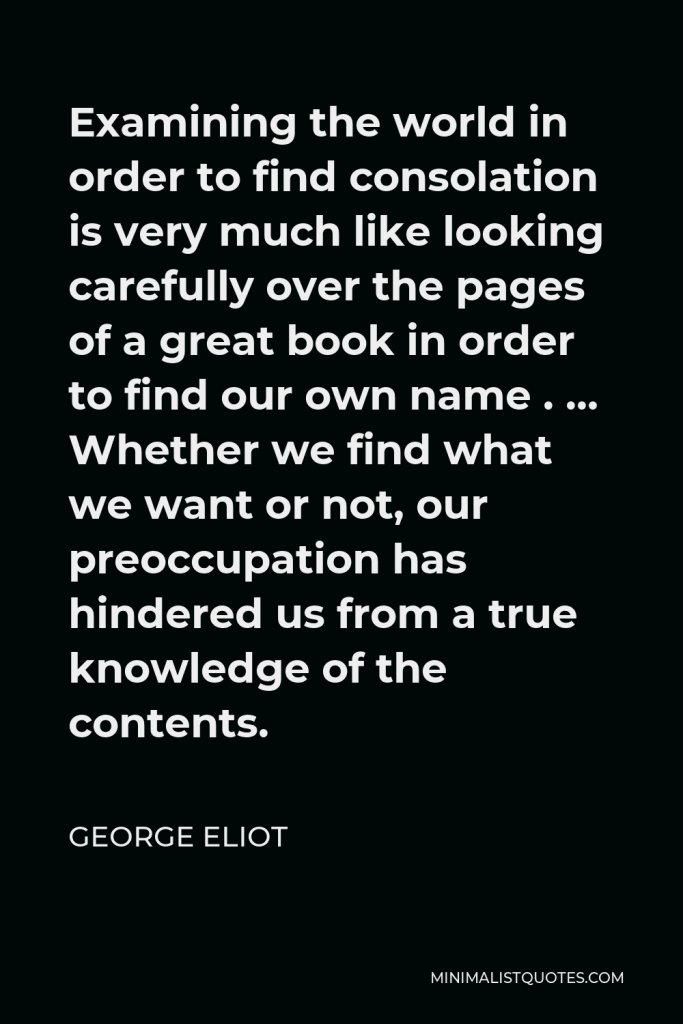

Examining the world in order to find consolation is very much like looking carefully over the pages of a great book in order to find our own name . … Whether we find what we want or not, our preoccupation has hindered us from a true knowledge of the contents.
GEORGE ELIOT -





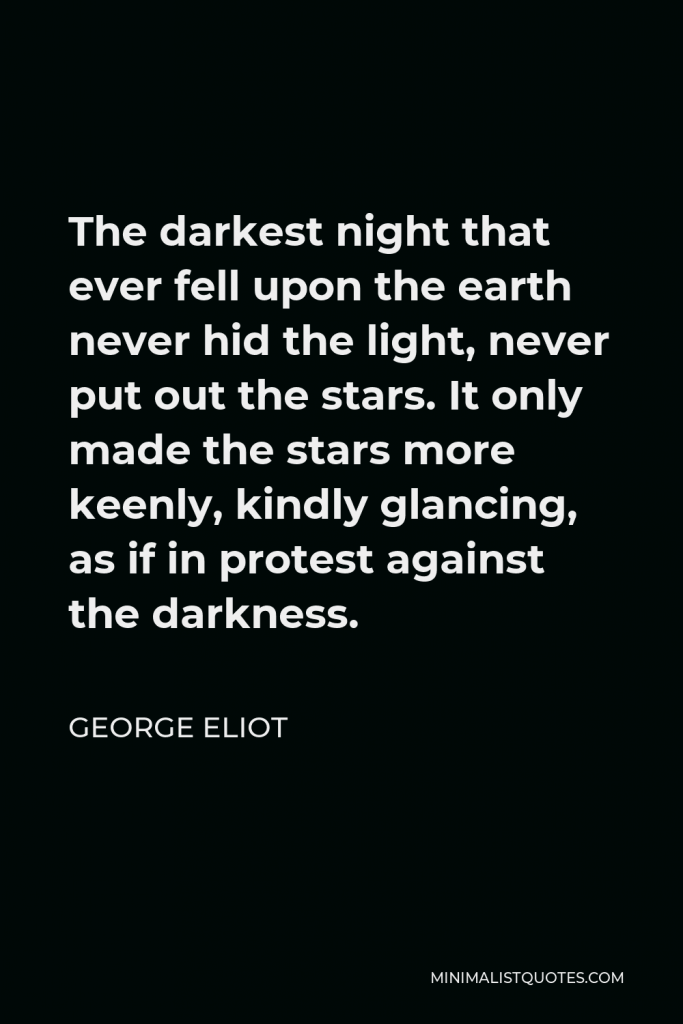

The darkest night that ever fell upon the earth never hid the light, never put out the stars. It only made the stars more keenly, kindly glancing, as if in protest against the darkness.
GEORGE ELIOT -







Life seems to go on without effort when I am filled with music.
GEORGE ELIOT -







The finest language is mostly made up of simple unimposing words.
GEORGE ELIOT -







What sunshine is to flowers, smiles are to humanity.
GEORGE ELIOT -





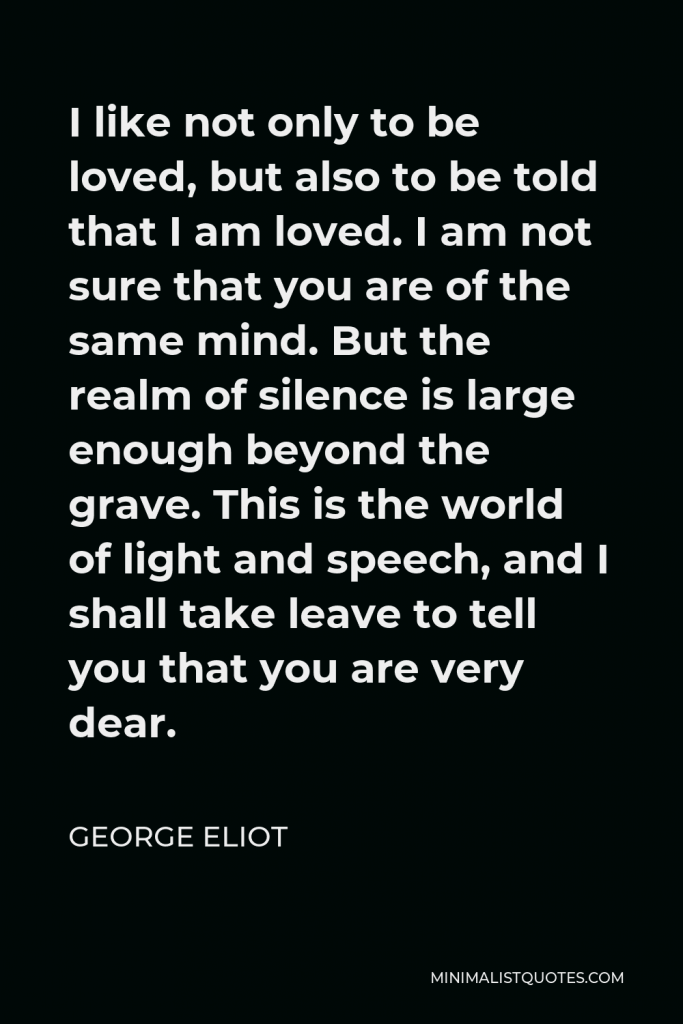

I like not only to be loved, but also to be told that I am loved. I am not sure that you are of the same mind. But the realm of silence is large enough beyond the grave. This is the world of light and speech, and I shall take leave to tell you that you are very dear.
GEORGE ELIOT -





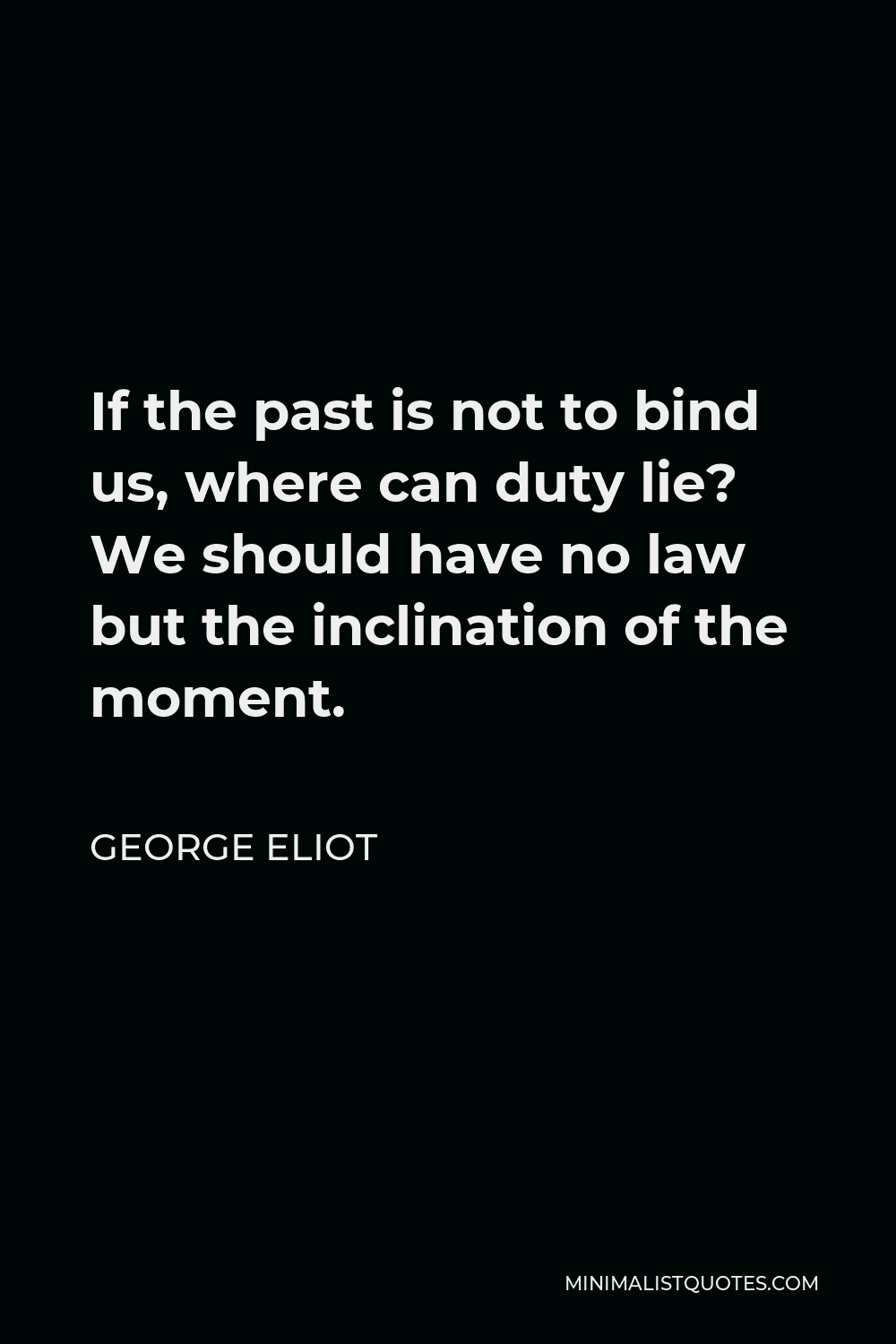
If the past is not to bind us, where can duty lie? We should have no law but the inclination of the moment.
GEORGE ELIOT -





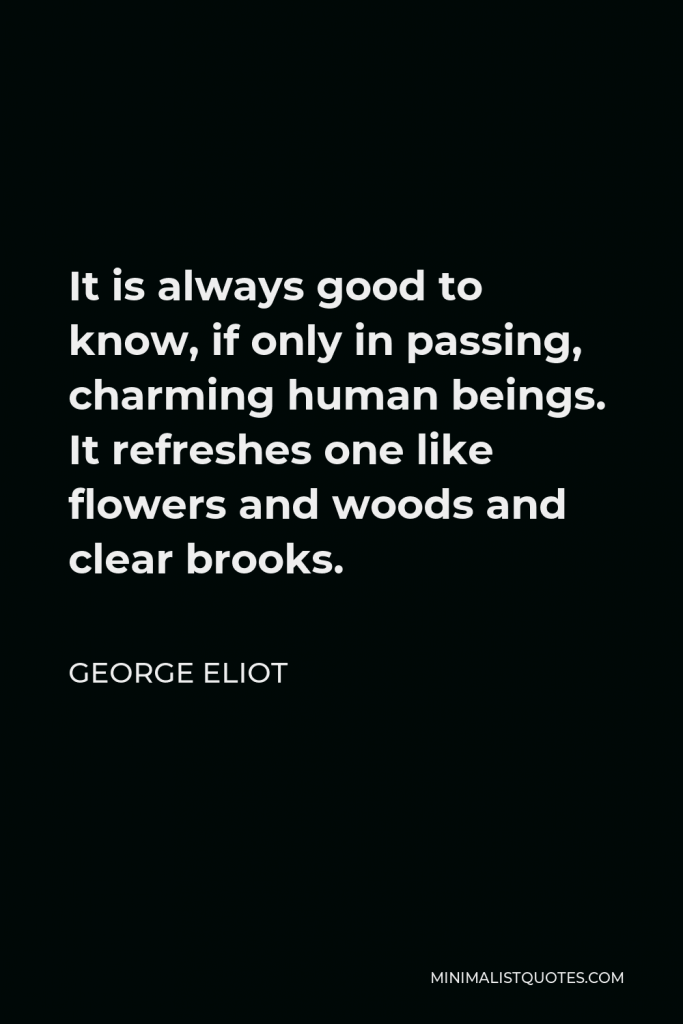

It is always good to know, if only in passing, charming human beings. It refreshes one like flowers and woods and clear brooks.
GEORGE ELIOT -





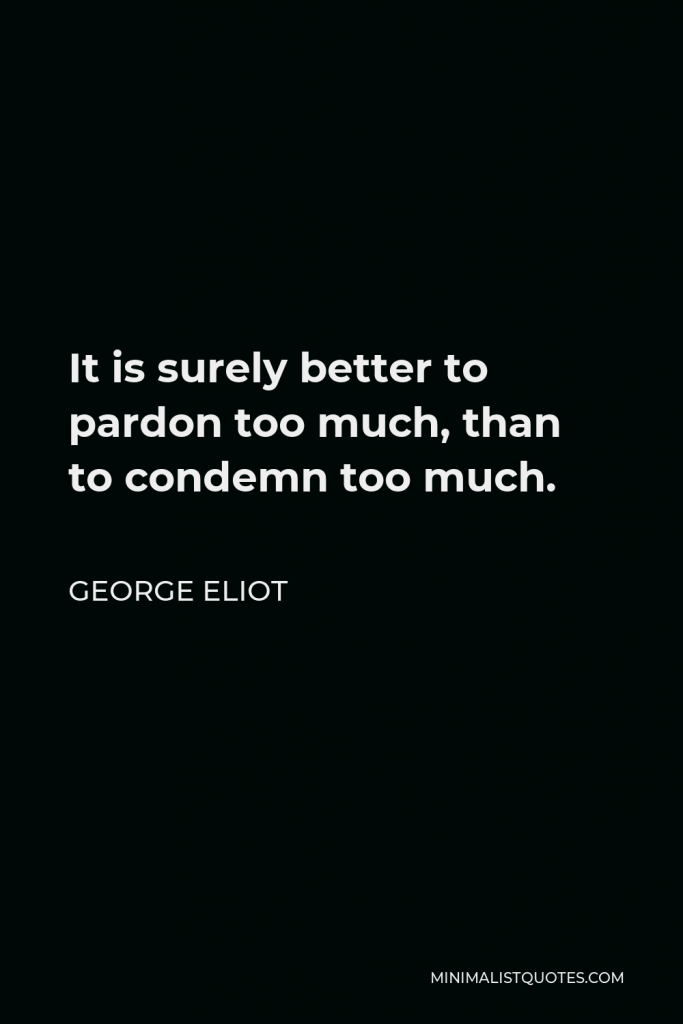

It is surely better to pardon too much, than to condemn too much.
GEORGE ELIOT -





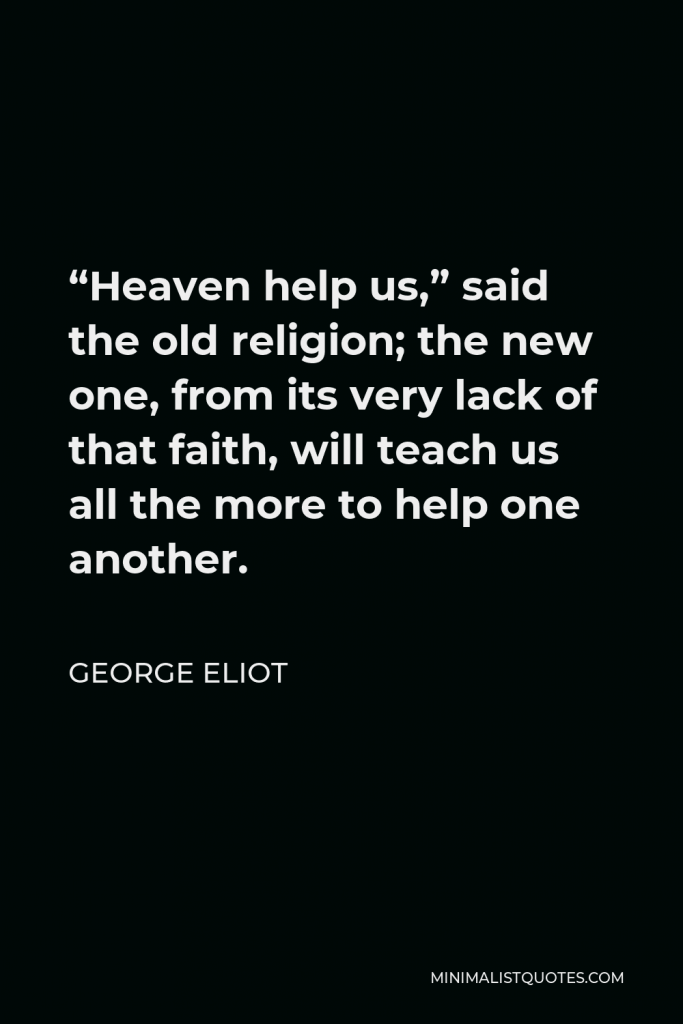

“Heaven help us,” said the old religion; the new one, from its very lack of that faith, will teach us all the more to help one another.
GEORGE ELIOT -






There is no killing the suspicion that deceit has once begotten.
GEORGE ELIOT
